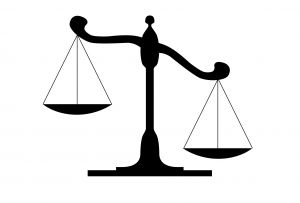 This was the gist of a few questions that we included under the big heading, “Why does a good God allow suffering?” In particular, people seemed most troubled by bad things happening to children – the most innocent or at least vulnerable members of society.
This was the gist of a few questions that we included under the big heading, “Why does a good God allow suffering?” In particular, people seemed most troubled by bad things happening to children – the most innocent or at least vulnerable members of society.
But to get to the bottom of this one, we really need to ask a prior question – “why do bad things happen AT ALL?” The Bible’s answer to this is given in Genesis 3 (and expanded in the rest of the Bible) where we learn that bad things happen because mankind has turned the created order on its head, distorting God’s good order and bringing judgment on ourselves. The result is a world where “bad things” happen to everyone. No-one is immune from being a victim and the fact is, no-one is innocent of being a perpetrator either.
According to the Bible, none if us meet God’s righteous standard, no-one seeks God or obeys him (Romans 3:10-12), each of us has turned to our own way (Isaiah 53:6). No-one, including children, is truly “innocent”. Therefore, according to strict justice, we all deserve to experience the penalty due for sin – death (Romans 6:23)!
BUT this is where God has a surprising answer to the problem of suffering and evil. Rather than demanding that we “sinners” pay the price for our own sin and deal with the problem that way, God pays the price himself by graciously offering Jesus in our place – the righteous for the unrighteous to restore us to God (1 Peter 3:18). In this way God demonstrates that he is both just (sin is paid for) AND the one who justifies (he pays the price himself) (Romans 3:26). In the gift of Jesus for sinners, God also reveals that he is not just demanding payment for all the wrong that has been done but that he is in the process of setting things right.
We don’t see the finished product yet by any means, but God has promised that a day is coming when he will judge the world with justice by the man he has appointed – Jesus (Acts 17:31). Those who have placed their trust in Jesus for the payment and forgiveness of their sin will be judged as “innocent” – as if Jesus himself were standing in the “dock” in their place – their sin, having been already paid for. But those who refuse to accept Jesus’ death in their place as the payment for their sin, well their debt is still outstanding and God will demand that it be paid.
Jesus has come once to save and forgive. He will come again to judge and to finally and fully put everything right. In the meantime, “bad things” still happen. We struggle on in a fallen world, hurting and being hurt, longing for justice, desperately needing grace…





Hi Pete,
Thanks for your blog above. Genesis 1- 3 does explain our world very well. I’d also like your thoughts on Ecc 9:11 which talks about chance, and Rom 8:28, which talks about all things working together for good. Thanks.
Hi David
Ecclesiates is an example of Israelite wisdom literature which had two basics complementary ideas derived from observation of “life under the sun” (Ecc 9:9 and others). The first of these ideas is that there seems to be a regularity to this life – lots of things do happen as you might expect – the sun rises, the sun sets and rises again (Ecc 1:5) – but the second idea is that there is more to life than we can observe with our senses – in lots of cases, we just can’t answer the biggest question – which usually begin with “Why?” – and so life seems to have a random element (chance, coincidence) as well as a predictable element.
But this is only true from OUR perspective as we live “life under the sun”. God is not limited in the same way. He sees it all, he knows it all, and yes, he orchestrates it all like a grand conductor to bring about his purpose – “the good of those who love him”.
Thanks for that Pete. It all makes for sense now.